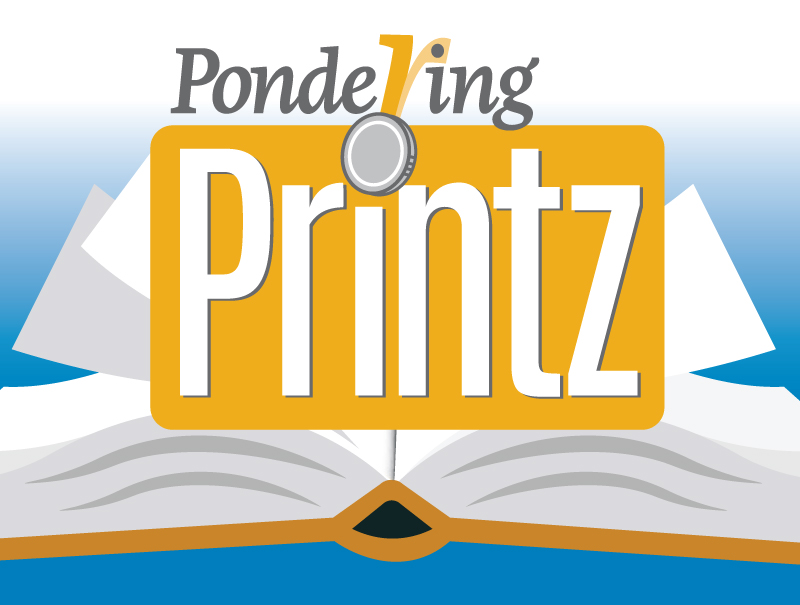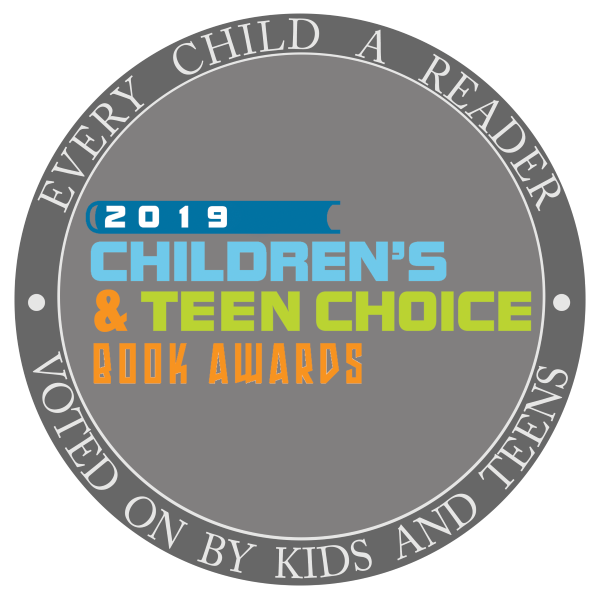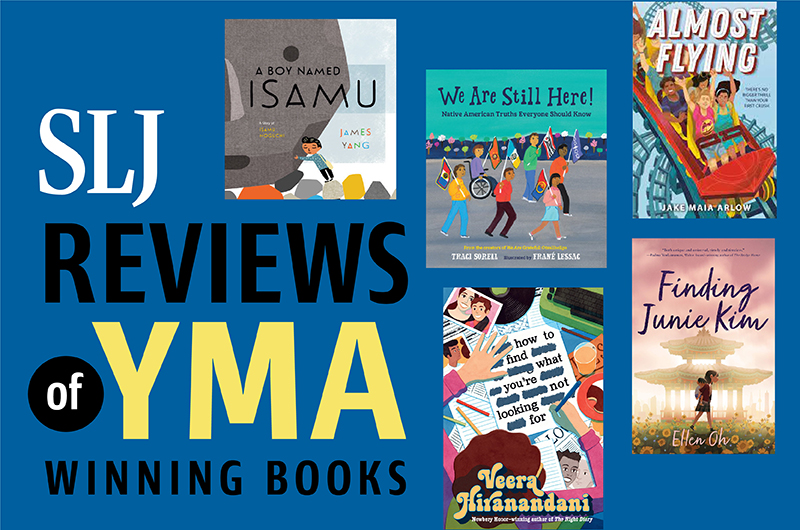Amelia Lost
 Sometimes it’s hard to tell fact from fiction. Time and again, I unearthed a telling incident or a charming anecdote only to learn that it wasn’t true. Frustrating? You bet. But it was also enlightening, a reminder that it is often difficult to find the history in the hype, to separate truth from myth.
Sometimes it’s hard to tell fact from fiction. Time and again, I unearthed a telling incident or a charming anecdote only to learn that it wasn’t true. Frustrating? You bet. But it was also enlightening, a reminder that it is often difficult to find the history in the hype, to separate truth from myth.
I love how in the introduction, “Navigating History,” Fleming discusses her biggest challenge in terms of writing the book. It’s normally the sort of thing you read at the end of the book in an author’s note, but by placing it here front and center, she not only primes her readers to be thinking about the historian’s craft, but she also sets the table for the delineation of Amelia’s character and the interpretation of theme: despite more than a few personal shortcomings, she was an enormous role model for women.
ADVERTISEMENT
ADVERTISEMENT
Fleming’s decision to relate the search and rescue efforts in between the biographical chapters is nothing short of brilliant. In the beginning, the search and rescue chapters are more suspenseful than the biographical chapters, but by the end of the book it’s the biographical chapters that contain all the drama, while we become increasingly resigned to her fate in the search chapters. Many nonfiction books this year have featured a dramatic incident like this disappearance, but Fleming has milked hers for all its worth. Notice how she uses cliffhanger endings to propel the reader onward.
And in the radio room, Leo Bellarts and the other crew members sat listening to “the mournful sound of that static.”
Where, they wondered, was Amelia Earhart?
Little did Amelia know it would be the end of her happy childhood.
They believed she had attempted the journey alone. Hearing the man’s voice made them think it was a hoax. Logged O’Hare, “Guess it isn’t her now.”
Nineteen-year-old Amelia longed to fly away–but to where?
Was Mabel’s story true?
Could Amelia Earhart really be calling for help?
But something happened in California that changed her life forever.
Said Amelia, “Aviation caught me.”
Across the central Pacific, radiomen hunkered down next to their radios.
Would Amelia call?
What was this hazardous undertaking? Amelia asked.
But the man refused to tell her . . . yet.
And these are just chapter endings. Many of the chapter subdivisions end with cliffhangers, too. Note, also, the stylistic use of questions used here and throughout the text (sometimes rhetorically as in the quote above from the introduction) to engage readers. To my mind, AMELIA LOST is the most distinguished contribution in terms of plot. Nothing else I’ve read so far this year even comes close, and it’s especially impressive because biographies tend to be very uncreative in terms of plot (little more than a chronological progression through the subject’s life with occasional diversions that illuminate the time and place the subject lived in–boring!).
In Fleming’s biographies, I always end up learning as much about the setting as I do the characters–read THE LINCOLNS and THE GREAT AND ONLY BARNUM and you’re virtually an expert in nineteenth century America–and that’s certainly true here. Earhart’s all over the place–literally! She grows up in various cities in the Midwest, spends time on both coasts as a young woman, and travels the world as a famous aviator. Nevertheless I still felt a keen sense of time and place.
I also find AMELIA LOST to be most distinguished in terms of character. While Fleming may have had to pass over some telling incidents or charming anecdotes because they weren’t true, she still managed to include many others that reveal Amelia Earhart to be a very complex character.
Of course, Schmidt’s creation of Doug in OKAY FOR NOW rivals Fleming’s recreation of Amelia Earhart, and I cannot fault those who lean toward that being most distinguished in terms of character, but it’s very close and the genres are so different. For me, it’s like the recent finale of The Great Food Truck Race. In the final truck stop challenge, both Hodge Podge and the Lime Truck had to go deep-sea fishing, and cook a dish with that fish in order to win an advantage in the final contest. The Lime Truck won, primarily because the fish was the star of their dish. Hodge Podge, on the other hand, had caught a better fish (arguably), but the chef made the mistake of overshadowing the fish with extra ingredients, too many vegetables and then a remoulade sauce on top. The distraught chef later exclaimed that it was the remoulade sauce that was his undoing. So, for me, OKAY FOR NOW is kind of like Hodge Podge: it had a good thing going, it didn’t need to muck it up with the remoulade sauce. The character of Doug is superb, so why add all those plot elements in the last part of the book? On the other hand, I think the plot of AMELIA LOST allows the character of Amelia to shine through.
Here’s an example of how it all comes together, from page 92.
She needed more practice with her radio equipment, too. Joseph Gurr, who had been hired to install the plane’s communication system, was eager for Amelia to learn how to use her radio and direction-finding equipment. He wanted to show her how to tune the receivers and how to operate the transmitters; to teach her correct radio procedures and help her understand what her radio system could and could not do. But every time Gurr begged her to come for a lesson, she put him off. She was too busy, she said. Her schedule was full. Finally–just weeks before her departure–she turned up at the airport hangar. Relieved, Gurr assumed he had all day to teacher her everything about her radio. But after only an hour, Amelia left for an appointment. Gurr was stunned. “We never covered actual operations such as taking a bearing with the direction finder, [or] even contacting another radio station,” he recalled. This very brief lesson was Amelia’s only formal instruction in the use of her communication system. And it would be her gravest mistake. Wrote one aviation expert, “The solution to Amelia’s future communication problems was right at her fingertips–if only she had understood how her radio worked.”
But we see this recklessness foreshadowed earlier, sometimes it’s plain foolishness (remember when she takes off with an empty tank of gas?), sometimes it’s kind of born out of necessity (remember when she’s forced to fly a larger, more unwieldy plane with little training in order to compete in a race?), and sometimes it’s part of the millieu of early aviation history (Fleming paints a stark picture of the high mortality rate, an awareness punctuated in Amelia’s case by letters she left behind for loved ones in case of such an event). If this foreshadowing in the biographical chapters isn’t impressive enough, there is something akin to it happening in the search chapters, too. At this point in the narrative, we’ve read about the communication problems between Amelia and the Coast Guard, and we’ve read several accounts of people who heard Amelia’s radio messages for help. The question that naturally arises from those accounts is: Why? Why did Amelia have so much trouble making contact? And this is the final piece to the puzzle. Now it all makes sense. It’s like a double dose of foreshadowing: we understand that the careless nature of Amelia lead to negligence and that, in turn, greatly contributed to–if not, caused–this tragedy.
ADVERTISEMENT
ADVERTISEMENT
It is impossible to gauge how much Amelia’s life inspired the generations of women who came after her. At a time when women felt limited to the roles of wife and mother, she encouraged them to challenge themselves and seize their dreams. And she did it with zest, boldness, and courage.
Amelia Earhart was not afraid of death. She had said so many times. A paragraph from a letter she left behind in case she did nto return from her world flight proved that. She wrote:
Please know that I am quite aware of the hazards. I want to do it because I want to do it. Women must try to do things as men have tried. When they fail, their failure must be but a challenge to others.
As a grief-stricken Eleanor Roosevelt told reporters, “I am sure Amelia’s last words were ‘I have no regrets.'”
All of the literary elements–plot, character, setting, style, theme–fuse together so well that it is hard for me to segregate one out from the others. Plot informs character; character informs setting; setting informs style; style informs theme; theme informs plot. It’s a remarkable accomplishment. This one goes in my top three, too. Is it the most distinguished contribution to American literature for children? I see it as nothing less than an Honor book, and quite possibly the Medal.
Filed under: Uncategorized
About Jonathan Hunt
Jonathan Hunt is the Coordinator of Library Media Services at the San Diego County Office of Education. He served on the 2006 Newbery committee, and has also judged the Caldecott Medal, the Printz Award, the Boston Globe-Horn Book Awards, and the Los Angeles Times Book Prize. You can reach him at hunt_yellow@yahoo.com
ADVERTISEMENT
ADVERTISEMENT
SLJ Blog Network
One Star Review, Guess Who? (#206)
“Complex social dynamics exist in the simplest of conflicts.” A Kyle Lukoff Interview on Sorry You Got Mad
UnOrdinary | Review
Navigating the High School and Academic Library Policy Landscape Around Dual Enrollment Students
Take Five: New Middle Grade Books in July
ADVERTISEMENT








LOVE the reference to The Great Food Truck Race!
It’s been almost 8 months since I read this, and I have to admit that it kind of fell off my radar, so thank you for making such an eloquent case for it. You reminded me of just about everything that I loved so much about it. I’m also very impressed with your point about the opposite directions the suspense runs it. I’ll have to reread this, but I’m pretty persuaded by your case so far.
Yes! This book definitely deserves at least an Honor. It remains solidly in my top three as well.
I also thought the switches between the biography and the search and rescue movement were brilliant. It made a story, that should not have been suspenseful since we all know how it ends, an edge of your seat read. The chapter endings helped with this too. It was impossible to put down. This is certainly the most distinguished book I have read this year in terms of plot.
Amelia’s character was developed well, warts and all. I don’t know if I can say yet that it is the most distinguished. (I have a real soft spot for Doug.) I’m going to need to reread both this and Okay for Now.
I was impressed with how much information about the time period was conveyed while continuing to be interesting and all about Amelia. Again, I’m not prepared to say it is the most distinguished setting yet, but I was very impressed. This is the first of Fleming’s books I have read and it is nice to know she does this in all of them. I certainly want to read more of her work now. (I have been concentrating on reading a lot of non-fiction on ancient civilizations the past couple of years for my daughter’s school and have clearly been missing out.)
Speaking of my daughter, she LOVED this book. (She is seven.) I know child appeal is not necessarily a factor, but still it is worth mentioning that it captured the interest and rapt attention of at least one. She read it all the way through twice and carried it around with her everywhere we went until it had to go back to the library. Everyone she met was thoroughly educated on Amelia Earhart.
I was shocked to see this did not make Publishers’ Weekly’s Best Book list – five non-fiction books were honored, but not Amelia Lost (or Drawing from Memory – which was the other surprise to me). Does anyone know if they deliberately limit their non-fiction list to 5 titles? They had 40 books total which included 11 picture books and 24 fiction titles. This just seems to represent the same trend we see in the Newbery of fiction having automatic supremacy over non-fiction. I don’t think it’s very likely that all 24 of those fiction titles (which admittedly I have not read even close to all of) are better than Amelia Lost. In fact, looking at what I have read, I think Amelia Lost is better than Breadcrumbs which was named to the list.
I really enjoyed Amelia Lost and agree that the plotting and character development were excellent (although I could and did manage to put it down since I’m not a non-fiction reader by nature). I’m also curious as to how people think it compares with the five non-fiction titles that were named to the PW list, none of which I’ve gotten to yet. Flesh and Blood So Cheap and Trapped have been discussed here – is anyone interested in arguing for these being more distinguished than Amelia? The other three titles are all picture book treatments – Balloons Over Broadway, Levi Strauss Gets a Bright Idea (which we have in the fiction section at our library?) and The House Baba Built – which undoubtably hinders their chances at being considered (not that it should necessarily, but it seems to do so anyway).
For those who are wondering, the PW Best Books for Children are here–
http://www.publishersweekly.com/pw/by-topic/childrens/childrens-industry-news/article/49395-pw-best-books-2011-children-s-books.html
The longer works of nonfiction include HEART AND SOUL (listed as a picture book), FLESH & BLOOD SO CHEAP, and TRAPPED. I like all of these, and wouldn’t necessarily begrudge any of them Newbery recognition, but I also wouldn’t rate any of them higher than AMELIA LOST either. PW did not give a starred review to AMELIA LOST or DRAWING FROM MEMORY so it doesn’t surprise me that they did not make their Best Books list.
One thing to keep in mind with PW is that, of the six major review journals, they review the least nonfiction (not counting the picture book variety), ostensibly under the pretense that since booksellers are their primary audience, and they don’t do as much business as, say, the school and library market, then it’s less of a priority. That’s how it’s been explained to me, anyway, but I’m not sure if it’s accurate. I do think PW has improved their review coverage of nonfiction for older readers in recent years, and they reviewed most of the buzzy titles (which has not always been the case).
AMELIA LOST really stands out for me as well – and I usually do not respond to nonfiction as much as I respond to fiction as a reader. As you have pointed out, the composition of the story was excellent, with Fleming effectively building suspense even though we know exactly how this story is going to end.
(My review of AMELIA LOST: http://slatebreakers.com/2011/11/10/review-amelia-lost-by-candace-fleming/)
Jonathan, I also thank you for that comprehensive reminder. It’s been awhile for me as well. As many of you stated the sturcture of AMELIA LOST is genuis. I’ve been surprised at my students response. I found it a fun book to book talk and they’ve been all in a tussel to get it ever since.
It’s in my top three as well.
Jen, thanks for the heads up on the best of list. I didn’t realize it we were in the thick of best of days already. Yay, for A MONSTER CALLS, boo for no OKAY FOR NOW. (They didn’t star it so I souldn’t be surprised.)
PW’s Best Books of the Year list is out. I’m amazed by what’s NOT on it: No OKAY FOR NOW, No AMELIA LOST, no TROUBLE WITH MAY AMELIA, and other heavy favorites in a lot of discussions.
See the full list here: http://www.publishersweekly.com/pw/by-topic/childrens/childrens-industry-news/article/49395-pw-best-books-2011-children-s-books.html?utm_source=Publishers+Weekly%27s+Children%27s+Bookshelf&utm_campaign=94b31149ae-UA-15906914-1&utm_medium=email
Sorry – didn’t see Jen and Jonathan already posted on the list until I had already posted. 🙂
Speaking of best of lists was anyone else surprise to see A MONSTER CALLS left off the Carnige short list? (Ness’ MONSTERS OF MEN did make the list).
MONSTERS OF MEN won the 2011 Carnegie Medal which was given this past summer. A MONSTER CALLS is on the longlist for the 2012 Carnegie Medal which will be given next year.
I just finished Amelia Lost, and wow! it was such an interesting read. I’m amazed at how Candace managed to keep me on the edge of my seat even knowing the outcome!
If I had a vote this would be hands down my winner. Absolute amazing book